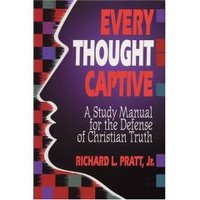 From MJ to Piper
From MJ to PiperA couple of years ago, I went to see Michael Jordan, who was my childhood hero, play against the Houston Rockets during his final year of pro basketball. The experience was a bit of a disappointment as I saw the once invincible MJ look like a mere human as he struggled, leading his team, Washington Wizards, to a defeat against the Rockets.
So as I anticipated John Piper's talk last week, I was a little nervous (for whatever reason) that I may once again experience another disappointing moment from one of my heroes. As the day of Piper's talk came, I wasn't expecting too much from Piper's message as I told my friend, Geoff, since we had probably heard this talk on 'preaching' like 5 billion times, so the only real excitement for me was to physically see Piper. But to my amazement and God's mercy, Piper probably gave the single greatest sermon/talk I have ever heard.
Piper, as always, spoke with weighty intellectual depth coupled with deep authentic passion for God's truth. Piper's balance of fire (passion) and light (truth) for God and Christ has always inspired me (since it seems so rare for a person to have both qualities), and seeing and experiening it live for the first time, made me feel like the very presence of God was there.
In Piper's talk, he spoke on:1. Preaching that is aware of the glory of God
2. What you believe about the glory of God?
3. How do people awaken to the glory of God?
a. Essential components of the gospel
1. The Gospel is an objective message about Christ, that is, it's about a historic Christ which did something in history apart from us.
2. The Gospel is a message about Christ's accomplishments, like propitiation, expiation, and fulfillment of the law.
3. The Gospel is received by faith a lone
4. The Gospel is about benefits (justification, sanctification, reconciliation, and etc.) received by faith
5. The Gospel main benefit is God, himself, or as Justin and Kevin would say "Being with God"
4. How does the glory of God relate to expository preaching?
My TakeawayMy main takeaway from Piper's sermon is that God has chosen to reveal his glory in the gospel, which is spoken in WORDS, therefore as teachers/leaders of the church, we need to expound the gospel from the Bible to people in order to awaken them to the beauty and glory of Christ (2 Corinth. 4), and not rely too heavily on other methods








